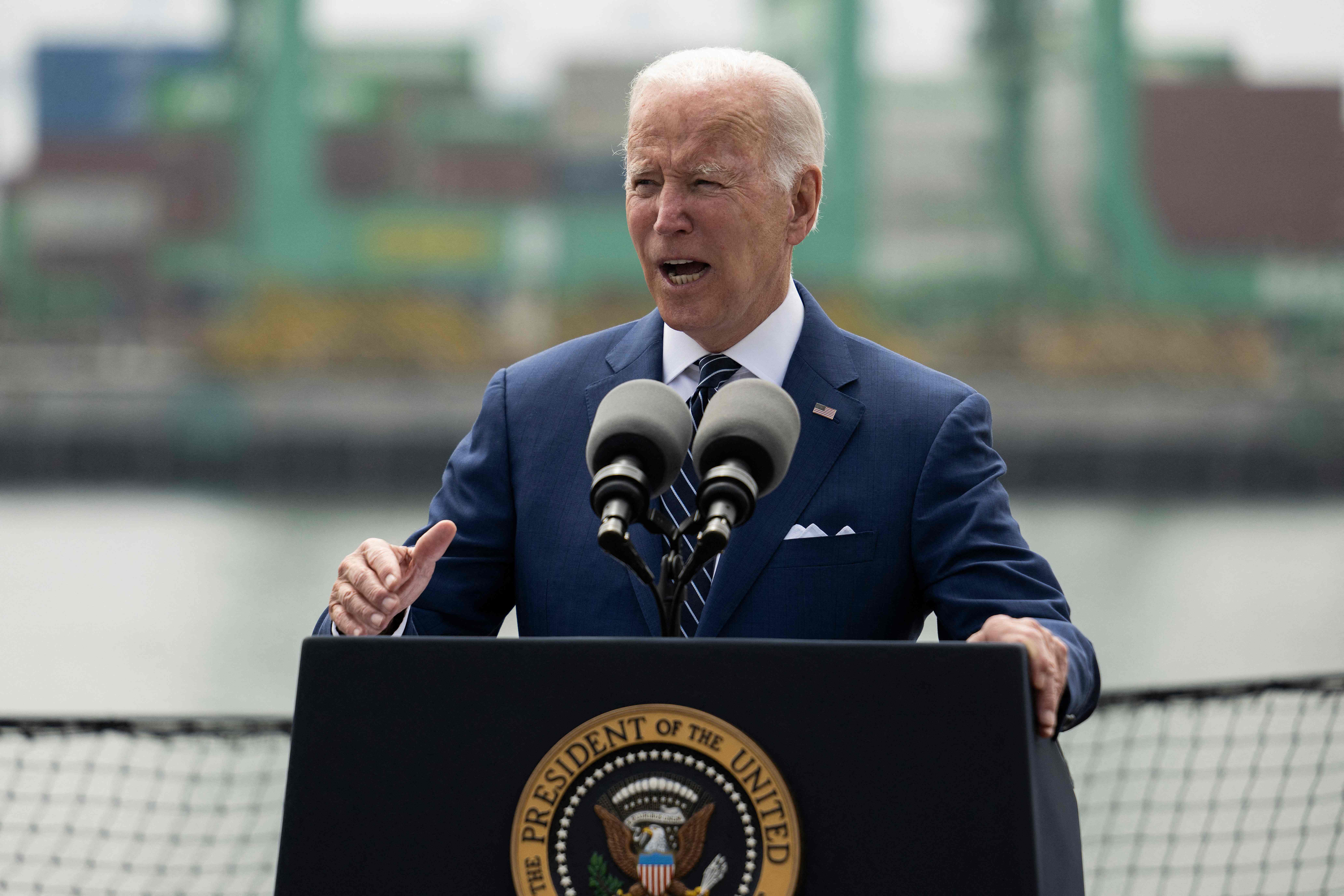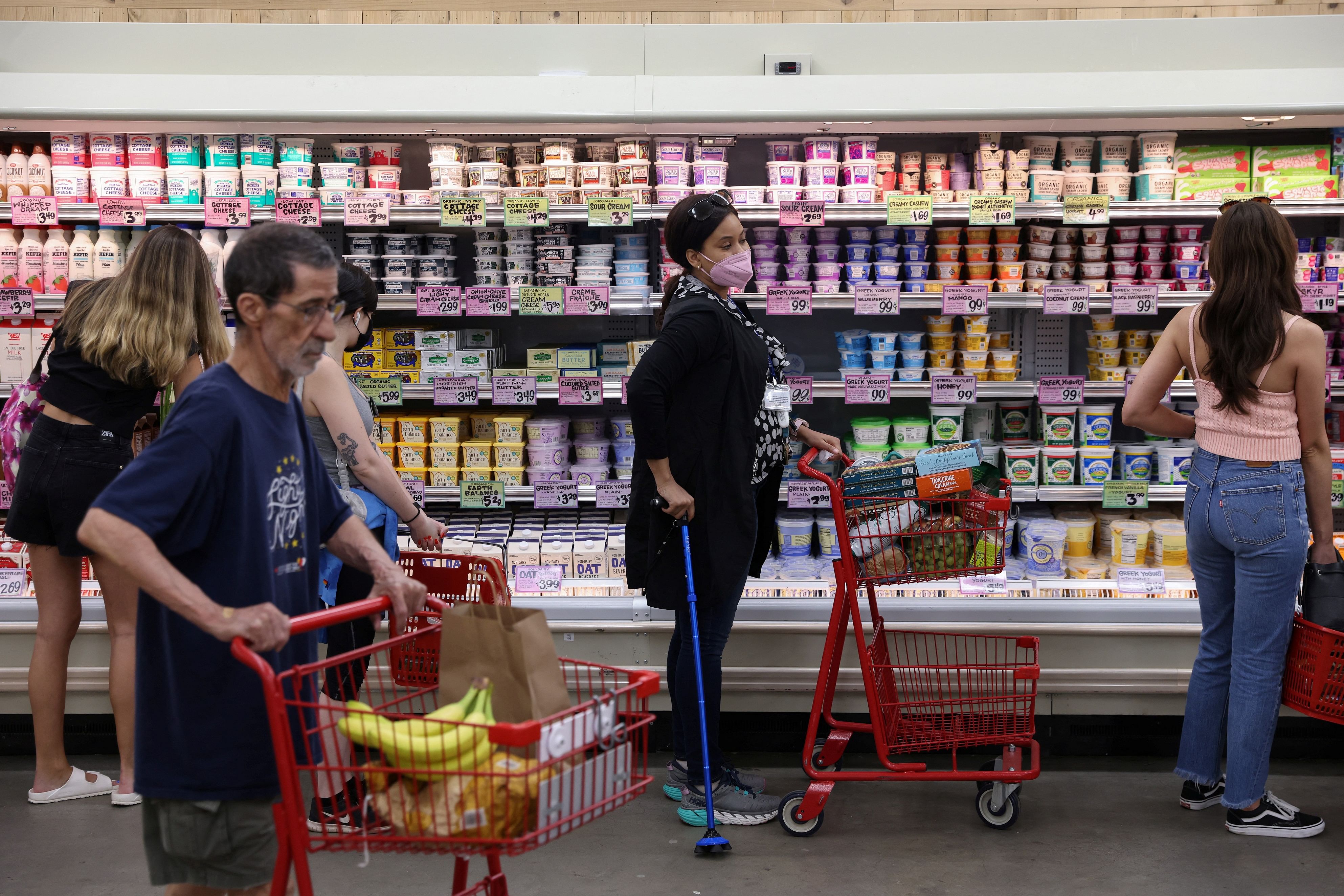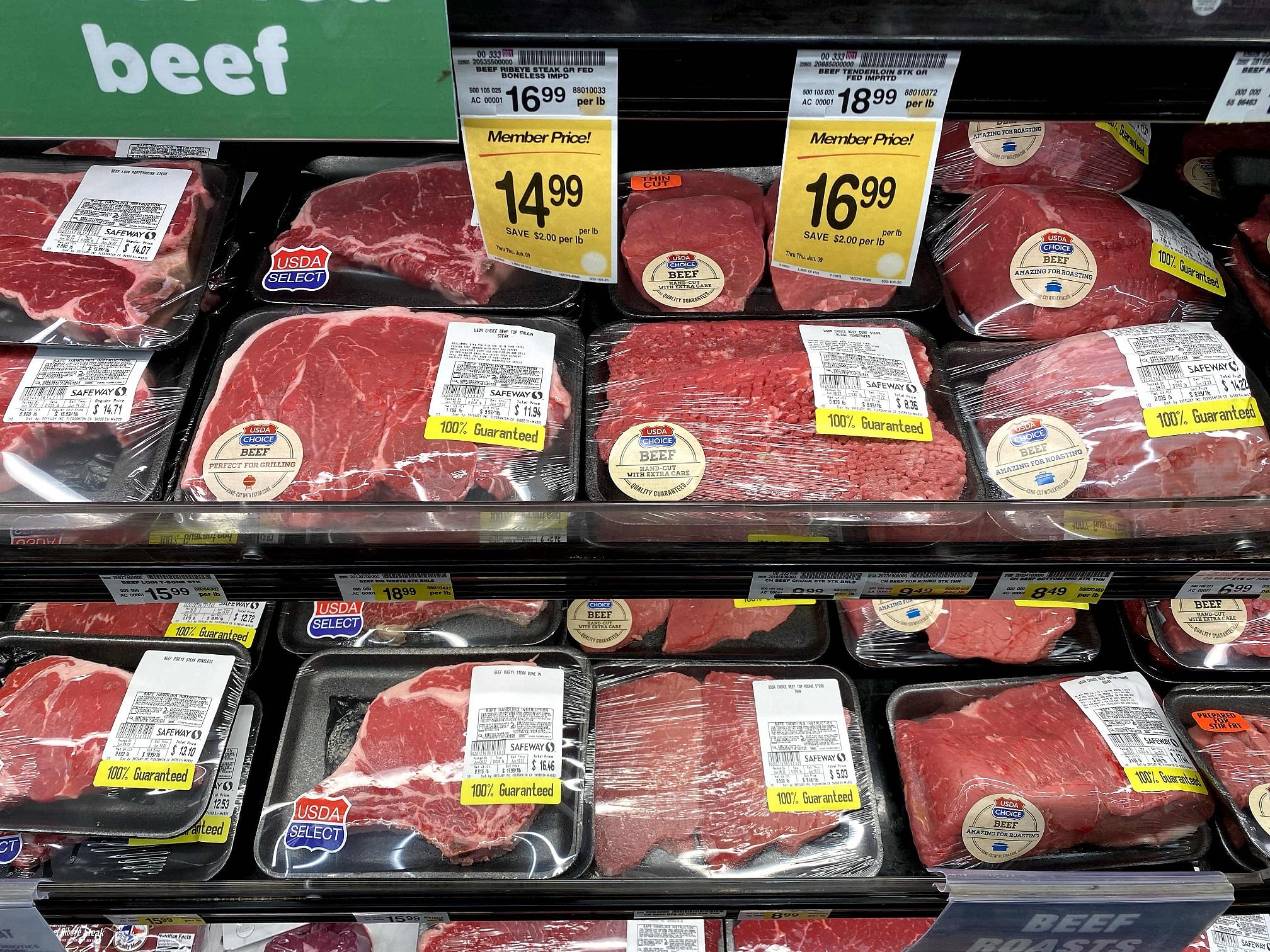Facing record inflation, Biden chides Exxon, oil companies for profits
Sign up now: Get ST's newsletters delivered to your inbox

US President Joe Biden speaks about the economy and inflation from the deck of the USS Iowa, in Los Angeles, on June 10, 2022.
PHOTO: AFP
LOS ANGELES (REUTERS, AFP) – US President Joe Biden on Friday (June 10) accused the US oil industry, and Exxon Mobil Corp in particular, of capitalising on a supply shortage to fatten profits after a report showed inflation surging to a new 40-year record.
US inflation surged to a new four-decade high in May, defying hopes that price pressures had peaked and deepening President Joe Biden's political troubles as Americans struggle to meet the cost of essentials like food and gas.
The national average price for US gasoline rose above US$5 (S$6.92) a gallon for the first time on Saturday (June 11), according to data from the American Automobile Association (AAA), extending a surge in fuel costs that are a central feature of rising inflation overall.
The national average price for regular unleaded gas rose to US$5.004 a gallon on June 11 from $4.986 a day earlier, AAA data showed.
Government data released on Friday put inflation at 8.6 per cent, extending increases not seen for a generation, with gas prices hitting daily records fuelled by Russia's invasion of Ukraine and supply chain challenges related to the pandemic.
Biden, whose popularity has taken a hit as prices surge, has made fighting inflation his top domestic priority, but is finding he has few tools to directly impact prices.
Biden, who came into office vowing to reduce US dependence on fossil fuels, said on Friday he was hoping to speed up oil production, which is expected to hit record highs in the United States next year.
But he also issued a warning to the industry, whose profits have jumped with oil and gas prices, pointing to the gains as evidence consumers are paying for more than higher labor and shipping costs.
“Exxon made more money than God this year,” Biden told reporters following a speech to dockworker union representatives at the Port of Los Angeles.
US oil companies are not using higher profits to drill more but to buy back stock, he added.
Share buybacks improve earnings per share by reducing the number of shares outstanding, indirectly helping to boost share prices. Companies see buybacks as a way to reward investors.
“Why aren’t they drilling? Because they make more money not producing more oil,” Biden said. “Exxon, start investing and start paying your taxes.”
Exxon pushed back at the comments, noting it has continued to increase its US oil, gasoline and diesel production, and had borrowed heavily to increase output while suffering losses in 2020.
“We have been in regular contact with the administration, informing them of our planned investments to increase production and expand refining capacity in the United States,” said spokesman Casey Norton.
Exxon will hike spending 50 per cent in its West Texas shale holdings, he said, where it expects to add 25 per cent more output this year after adding 190,000 barrels to oil production last year.
An ongoing Texas refinery expansion will add the equivalent of a “new medium-sized refinery,” said Norton.
Exxon, the largest US oil producer, lost some US$20 billion in 2020, and had borrowed more than US$30 billion to finance operations. It paid US$40.6 billion in taxes last year, US$17.8 billion more than in 2020, he said.
The president spoke during a visit to the Port of Los Angeles, where he defended his economic and job creation record and deflected blame for inflation.
In a Democratic campaign fundraising event in Beverly Hills that evening, Biden sounded a cautious tone about the prospects for inflation going forward:

People shop at a supermarket in Manhattan, New York City, on June 10, 2022.
PHOTO: REUTERS
“We’re gonna live with this inflation for a while,” he said. “It’s gonna come down gradually, but we’re going to live with it for a while.”
Biden earlier had chided US oil, gas and refining industries for using “the challenge created by the war in Ukraine as a reason to make things worse for families with excessive profit-taking or price hikes”.
Exxon posted its biggest quarterly profit in seven years when it reported fourth-quarter earnings in February. After halting share buybacks several years ago, it resumed them this year and pledged to spend up to US$30 billion through next year.
Numerous companies have said they are holding down spending that could boost oil output to lower US$100-plus per barrel oil prices, because that is what investors are demanding.
Biden in his Friday remarks urged Congress to pass legislation to cut energy, prescription drugs and shipping costs. Shipping companies made US$190 billion in profit, a seven-fold increase in one year, Biden said at the port. The situation made him so “viscerally angry” that he wanted to “pop them”, he said.

Trays of beef for sale at a supermarket in McLean, Virginia, on June 10, 2022.
PHOTO: AFP
Prices in the United States continued to rise last month for goods including housing, groceries, airline fares and used and new vehicles, setting new records in multiple categories, according to a Labor Department report.
"The headline inflation numbers are dreadful. Strip away some special factors & they're merely bad," Harvard economist and former White House adviser Jason Furman said on Twitter.
Some economists expected the easing of pandemic restrictions to cause a shift of US consumer demand towards services and away from goods, which they said would ease inflation pressures, but prices for services increased as well.
"The price of fuel oil and natural gas is working its way through the economy," Biden economic adviser Brian Deese told CNBC.
"The issue now is how can we actually make progress... that would improve that?
"We're calling on Congress to move on shipping legislation that would bring down the cost of moving goods overseas."
Soaring energy costs
CPI rose one per cent compared to April, after the modest 0.3 per cent gain in the prior month, the Labor Department reported, far higher than expected by analysts.
Energy has soared 34.6 per cent over the past year, the fastest since September 2005, while food jumped 10.1 per cent - the first increase of more than 10 per cent since March 1981, the report said.
Fuel oil more than doubled, jumping 106.7 per cent, the largest increase in the history of CPI, which dates to 1935.
The US has come roaring back from the economic damage inflicted by the Covid-19 pandemic, helped by bargain borrowing costs and massive government stimulus measures.
But with the pandemic still gripping other parts of the world, global supply chain snarls have caused demand to far outstrip resources. Meanwhile, the conflict in Ukraine has sent global oil prices above US$100 a barrel.
The University of Michigan consumer sentiment index - which measures how American consumers feel about the economy, personal finance and business and buying conditions - fell sharply Friday from 58.4 to 50.2, its lowest recorded value.
The Federal Reserve has begun raising interest rates aggressively, with another big hike expected next week, and more ahead in coming months as policymakers attempt to combat inflationary pressures without triggering a recession.
The CPI surge "raises the probability of even more aggressive Fed rate hikes to tamp down on inflationary expectations," said Mickey Levy of Berenberg Capital Markets, adding that a pause in rate hikes in September is "looking increasingly unlikely."


